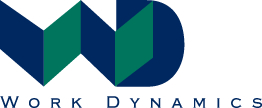News
20 YEARS ON

Work Dynamics recently celebrated its 20th anniversary. We spoke to CEO and founder Francois Wilbers about the years gone by and times to come.
“I enjoyed working for the corporate world but not in it. This led to Work Dynamics being founded, initially operating from my home in the very early years. The grand vision at the time was simply to survive - I had a family to support. My first client was Aerodyne Technology.
What kept us going was a belief in God, the business plan and myself. I had just completed my MBA at the Stellenbosch University Business School, so I naturally wrote a business plan for Work Dynamics. I’m proud to say that we achieved our revenue and profit projections.
The Employment Equity Act accentuated the need for assessment services. After 10 years or so, the business evolved towards organisational development, performance management, remuneration consulting and especially, assessments. The introduction of the Employment Equity Act – where companies needed to improve their equity profile – meant that employers needed objective assessments to reduce the risk of wrong appointments and fruitless training and development expenses.
HR professionals who moan about not being taken seriously are missing the point. Generally, managers acknowledge the value of Human Resources. But I think companies need more from HR professionals these days. In order to be strategically relevant, HR practitioners need to be schooled in business economics, finance and have a strong business acumen. You will always need practitioners who are strong on the transactional side of HR, but practitioners will need to increasingly work at a strategic level where there is no historical information available. For example, what is the strategy to deal with Generation Y and Milleniums?
In terms of HR challenges and opportunities, one hot potato will be the way that remuneration is determined for executives. It seems as if the underlying decisions are very much based on self-interest and short-term gains. You’re finding collusion, price fixing and often little regard for the impact on society. The management of organisation behaviour presents an opportunity – successful companies have highlighted the power of having a unique corporate culture, a key success factor. I also think that assessments will remain high on the HR agenda. There is increasing pressure on the public sector to improve their service delivery, with more public entities now implementing psychometric and competency based assessments.
Going forward, we’d like to ensure that we remain relevant in South Africa. Remaining “relevant” has a number of elements. Firstly, further developing our track record as a passionate, talented and high performing team. From a product perspective, we’ll need to improve our revenue mix – at the moment, assessments is our lead service. We’ll continue exploring ways to improve our BBBEE status and give back to our profession – offering internships to students is one example of this. Broadening our horizons into other African countries is also very much part of our planning. And after 20 years, it’s time to look seriously at succession planning.





























